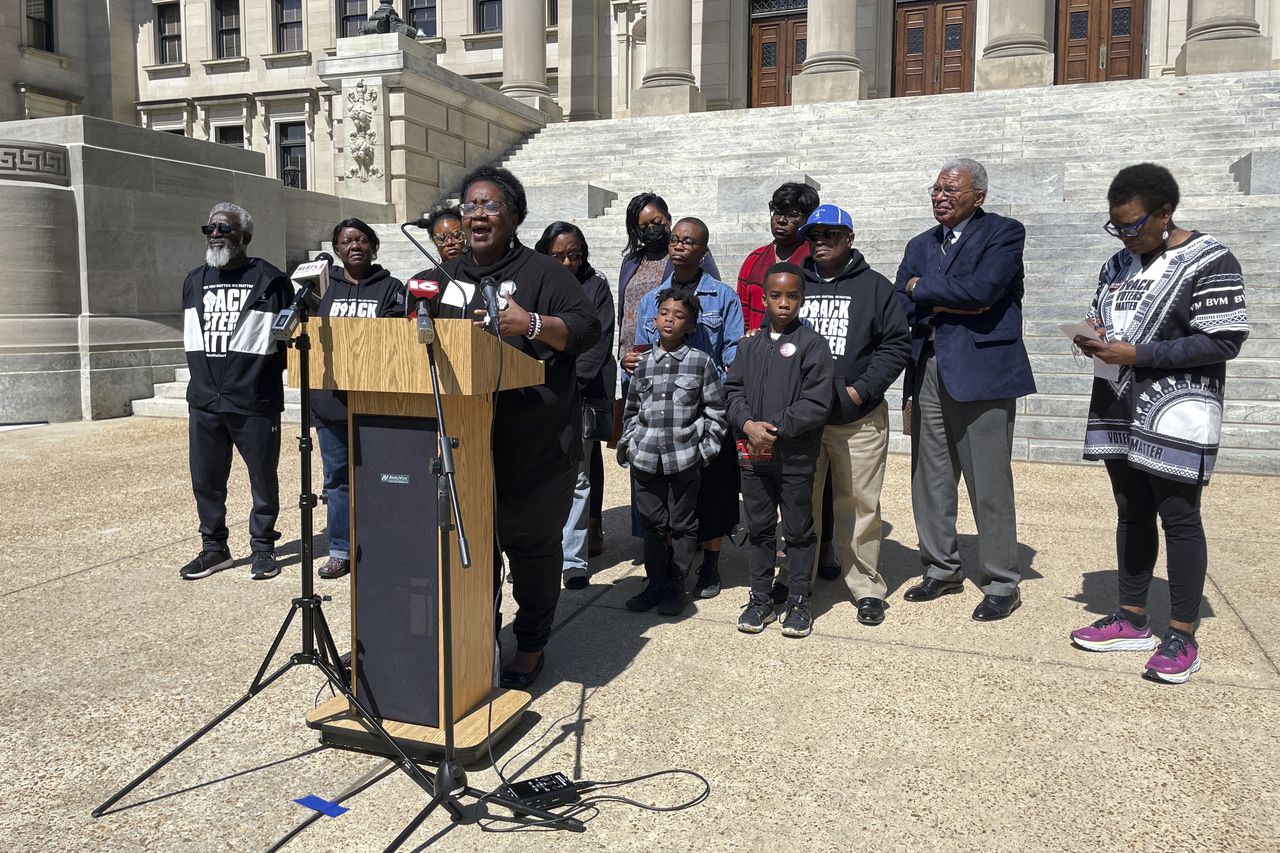Inside the lawsuits against Mississippi’s legislation restricting Jackson’s self-governance
The NAACP has sued Mississippi Gov. Tate Reeves after he signed two bills that largely expand state authority over the city of Jackson, the state’s capital. It isn’t the only challenge to SB 2343 and HB 1020.
SB 2343 grants the Republican-run state’s Capitol Police jurisdiction over the majority-Black and Democratic-run city.
HB 1020 creates a temporary court within a defined area of the city that appoints state-chosen judges rather than elected ones.
The NAACP warned that these “separate and unequal policing structures” target Jackson’s majority-Black residents, as it is not implemented in any other jurisdictions of the state.
“They’re only imposing this on the city of Jackson,” said NAACP national president, Derrick Johnson, during an April community meeting in Jackson. “No other jurisdiction in the state of Mississippi will have this type of oversight and taking of local authority. That is a direct violation of equal protection.”
But Reeves claimed the laws are necessary due to the rise of violent crime, as Jackson has a homicide rate that’s 15 times higher than the rest of the U.S. From 2020 to 2022, the city has had over 100 homicides each year, an increase from years prior.
He also claimed that the Jackson Police Department is severely understaffed, adding that he believed that deploying state-run Capitol Police to the city could provide stability, according to AP News.
While Reckon did not receive a response from the office of Governor Reeves when asked whether Jackson Police Department had available job vacancies and, if so, how many, the office of Jackson Mayor Chokwe Antar Lumumba confirmed that “there are active vacancies” they are working to fill, but did not provide a number of how many openings there were.
The NAACP’s lawsuit detailed how these laws worsen the violation of Jackson residents’ equal protection rights by giving state officials “unfettered discretion” to limit their freedoms and empower state officials to prosecute and sentence a person without regard of the seriousness of the offense.
“In certain areas of Jackson, a citizen can be arrested by a police department led by a State-appointed official, be charged by a State-appointed prosecutor, be tried before a State-appointed judge and be sentenced to imprisonment in a State penitentiary,” the lawsuit said. “Regardless of the severity of the act.”
Critics of the bill also argue that these laws would shift power to mostly white conservative officials making decisions for a city that’s 83 percent Black.
Three Jackson residents also filed a lawsuit against state officials on Monday, over HB 1020′s violation of the Mississippi constitution.
“State lawmakers have said that this takeover of our judicial system is for our own good, for our own safety, and that is deeply offensive to me,” said Ann Saunders, one of the plaintiffs, in a statement. “African Americans in Mississippi died so that we could vote. How does weakening the right to self-governance make us safer?”
That’s why Blake Feldman, Mississippi Center for Justice’s Impact Policy Counsel and Project Coordinator, thinks the state should invest in “the things we know make communities safer,” like affordable housing, good-paying jobs, access to healthcare and quality education, instead of expanding jurisdiction and authority of “unaccountable state police force and unelected judges.”
“Depriving citizens of equal treatment, democracy, and fundamental civil rights doesn’t make us any safer,” said Feldman, in an email statement to Reckon. “And even if it did, that price is too high.”
Jackson isn’t the only democratically-run city to encounter a state takeover of authority.
Tennessee’s lawmakers passed a series of bills restricting its capital city, Nashville, to have the right to self-govern during this year’s legislative session.
They include cutting the size of the Metro Nashville Council in half, eliminating its police oversight board, overtaking seats on the city’s airport and sports authorities, and many more restrictions.
Flint, Michigan, is another example of a majority-Black city that had local authorities stripped of their jurisdiction by the state government, with significant consequences.
Michigan’s then Republican Gov. Rick Snyder approved a state takeover for Flint in 2011 after determining the city was in a financial emergency. Snyder’s appointed emergency manager made the detrimental decision to switch the city’s water supply to the Flint River in 2014.
The water was not treated to decrease corrosion from old pipes, which caused lead to contaminate it.
And despite widespread complaints over water quality by residents, the indifference of state environmental regulators exacerbated the Flint Water Crisis.
